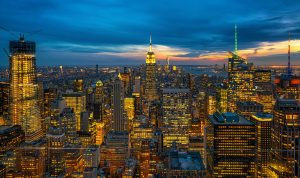 Energy production in the United States has never been higher, but a new Wall Street Journal story lays out the damage inflicted on taxpayers and customers by protesters playing political games and the shortsighted policies of leaders in states such as New Jersey and New York.
Energy production in the United States has never been higher, but a new Wall Street Journal story lays out the damage inflicted on taxpayers and customers by protesters playing political games and the shortsighted policies of leaders in states such as New Jersey and New York.
First the facts: The United States produced a record 37 trillion cubic feet
of gas last year – up 44 percent from a decade earlier. Consumption in the United States rose by 3.5 percent last year for a total of 817 billion cubic meters of gas.
But politics and protests are preventing people from getting the energy they need, the Wall Street Journal reports:
America is awash in natural gas. In parts of the country there’s hardly a drop to burn.
Earlier this year, two utilities that service the New York City area stopped accepting new natural-gas customers in two boroughs and several suburbs. Citing jammed supply lines running into the city on the coldest winter days, they said they couldn’t guarantee they’d be able to deliver gas to additional furnaces. Never mind that the country’s most prolific gas field, the Marcellus Shale, is only a three-hour drive away.
Why is that? Quite simply, protesters are playing politics with pipelines – and too many policymakers are listening:
One reason for the problem is that pipelines have become political. Proponents of reducing the use of fossil fuels have had little luck limiting drilling in energy-rich regions. Instead, they’ve turned to fighting pipeline projects on environmental grounds in regions like New York and the Pacific Northwest, where they have a more sympathetic ear.
The result is higher prices in parts of the Northeast and Northwest, along with uncertain availability and threats to economic development. For example, during a snowstorm in New York City, natural gas prices climbed from $3 to $175 as antiquated infrastructure didn’t allow for supply to meet demand.
Yet, New York Gov. Andrew Cuomo and New Jersey Gov. Phil Murphy continue to fight the proposed Williams Pipeline that would equalize the supply/demand equation and keep New Yorkers’ houses warm when they need it most – and stop needlessly driving up energy prices.
